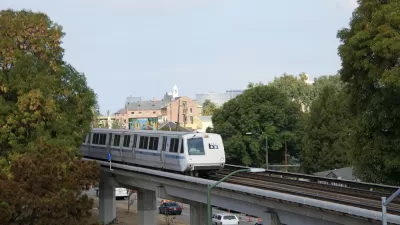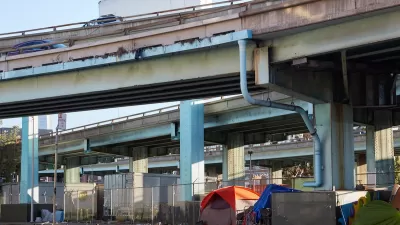We can’t simply rely on the federal government to solve the San Francisco Bay Area’s challenges. Time and time again, we have turned to local do-it-yourself solutions. This year, voters rolled up their sleeves and took matters into their own hands.

Much of the conversation over the past week has understandably focused on the national election results—what it might say about the current state of our country and what it portends for our future. Hate-filled language from the campaign trail has many Americans wondering “Am I welcome and safe in my community?” Likewise, Trump’s promises to slash federal environmental protections raise deep concerns about our water, air, and climate.
Yet in this time of uncertainty, it’s important to reflect on another powerful story about the election: what the local results say about the future of the San Francisco Bay Area. Jeremy Madsen, CEO of Greenbelt Alliance, writes an editorial celebrating the resounding support for sustainable and inclusive planning efforts.
In sharp contrast to the national election results, the Bay Area's election results showed millions of voters marked their ballots “yes” for a more sustainable and inclusive future. In local elections around the region, people chose to invest in building more homes that people can afford, improve transportation choices, and protect natural landscapes and local farms.
Madsen cites the following measures as evidence:
- Measure K in Sonoma County.
- Measure RR in San Francisco, Alameda, and Contra Costa counties.
- Measure A in Santa Clara County.
- Measure N1 in the city of Albany.
In an appeal to "think globally, act locally," Madsen writes:
That means being a welcoming neighbor. We’ve all watched the housing affordability crisis force people out of our communities and into ever-lengthening commutes to the edges of the region. Each of us can be part of the solution. When new homes are being considered in town — especially if they’ll serve those most in need — we can speak up in support. If a new transit hub or bike lane is being proposed, we can be a positive voice for change. That’s what we’re about here — giving people of all walks of life a chance to succeed.
The Greenbelt Alliance has also collected election results at greenbelt.org/voter-guide.
FULL STORY: Bay Area Voted for a Sustainable and Inclusive Future

Planetizen Federal Action Tracker
A weekly monitor of how Trump’s orders and actions are impacting planners and planning in America.

Congressman Proposes Bill to Rename DC Metro “Trump Train”
The Make Autorail Great Again Act would withhold federal funding to the system until the Washington Metropolitan Area Transit Authority (WMATA), rebrands as the Washington Metropolitan Authority for Greater Access (WMAGA).

DARTSpace Platform Streamlines Dallas TOD Application Process
The Dallas transit agency hopes a shorter permitting timeline will boost transit-oriented development around rail stations.

Renters Now Outnumber Homeowners in Over 200 US Suburbs
High housing costs in city centers and the new-found flexibility offered by remote work are pushing more renters to suburban areas.

The Tiny, Adorable $7,000 Car Turning Japan Onto EVs
The single seat Mibot charges from a regular plug as quickly as an iPad, and is about half the price of an average EV.

Supreme Court Ruling in Pipeline Case Guts Federal Environmental Law
The decision limits the scope of a federal law that mandates extensive environmental impact reviews of energy, infrastructure, and transportation projects.
Urban Design for Planners 1: Software Tools
This six-course series explores essential urban design concepts using open source software and equips planners with the tools they need to participate fully in the urban design process.
Planning for Universal Design
Learn the tools for implementing Universal Design in planning regulations.
Municipality of Princeton
Roanoke Valley-Alleghany Regional Commission
City of Mt Shasta
City of Camden Redevelopment Agency
City of Astoria
Transportation Research & Education Center (TREC) at Portland State University
US High Speed Rail Association
City of Camden Redevelopment Agency
Municipality of Princeton (NJ)




























